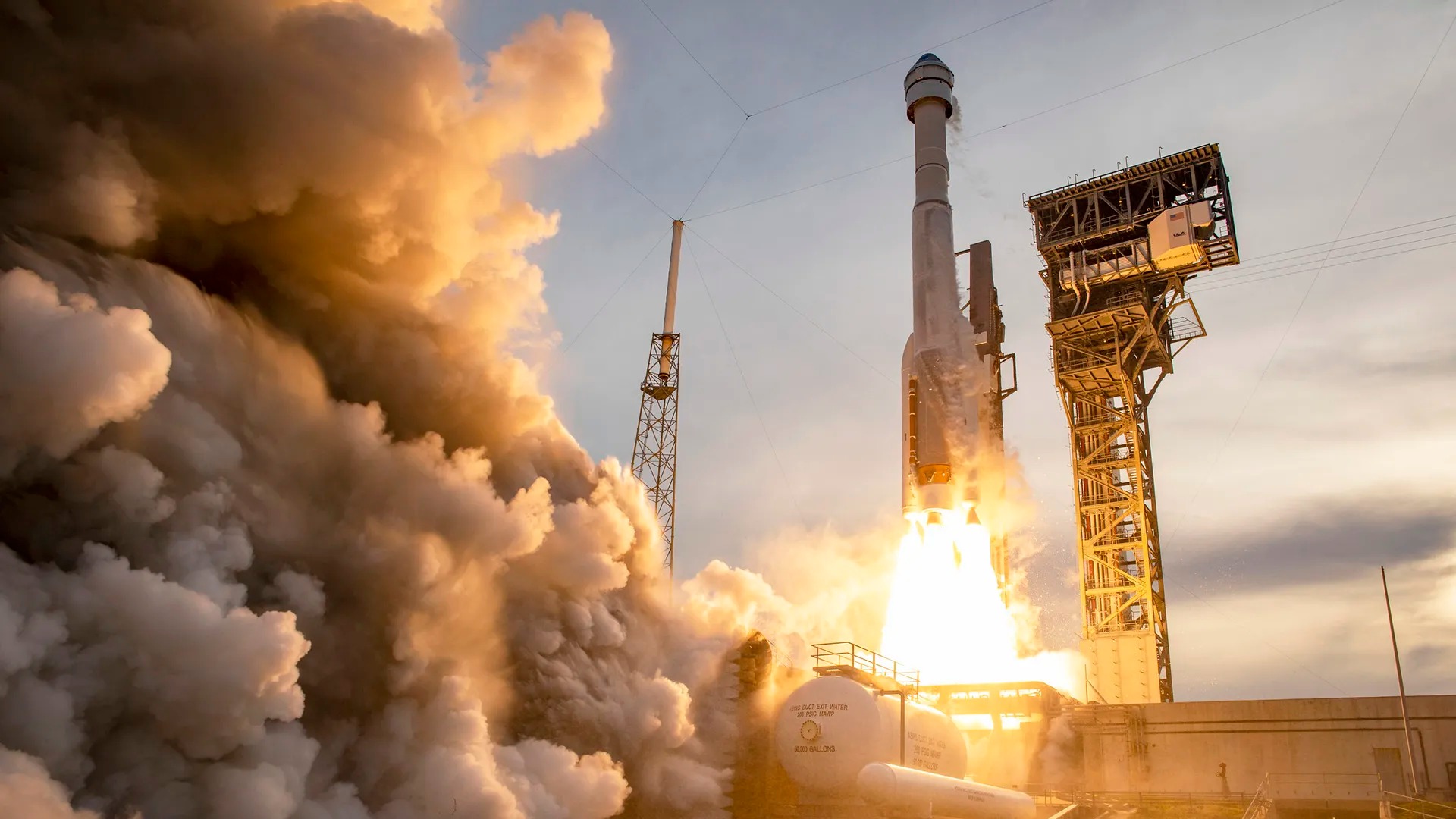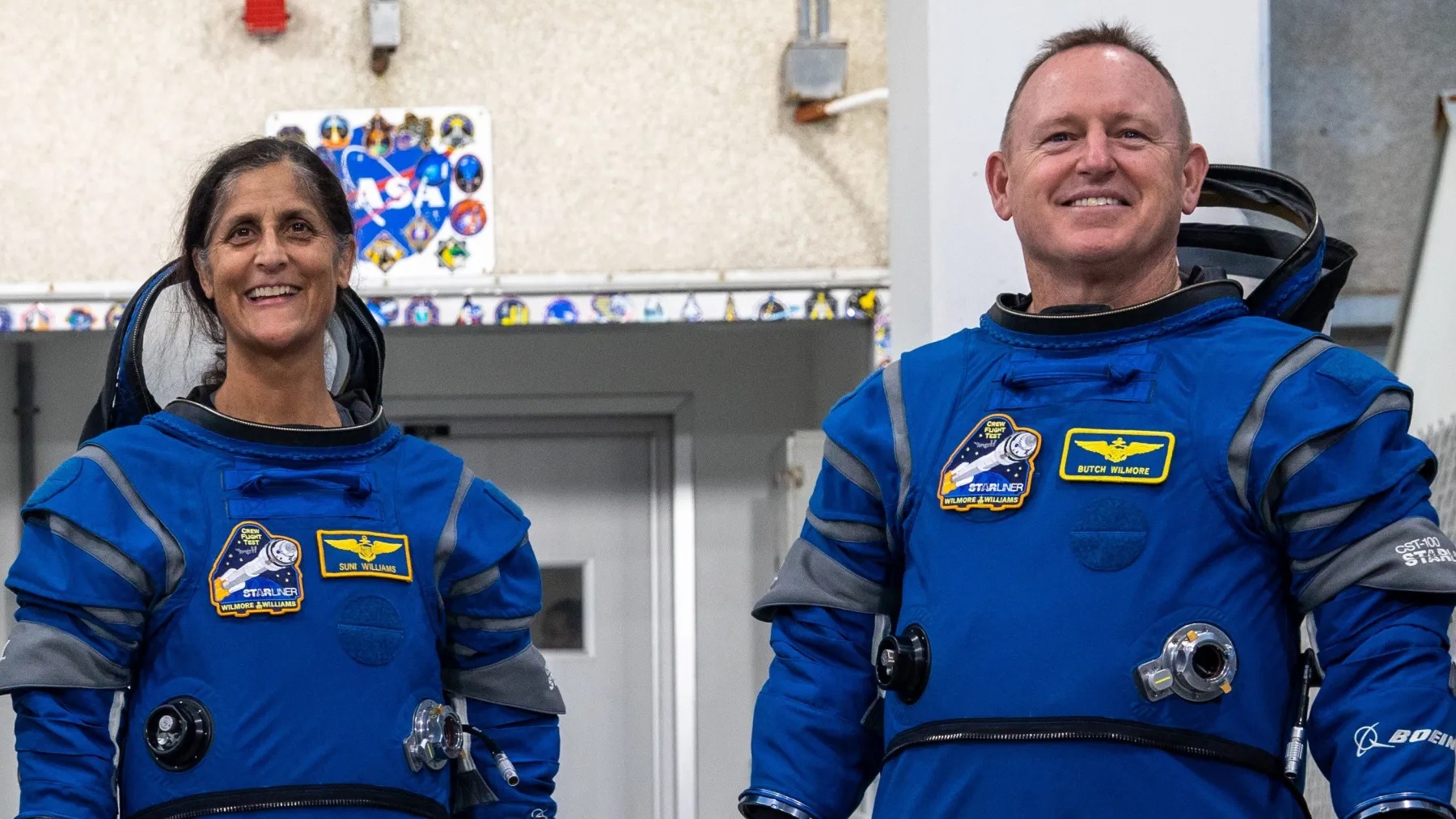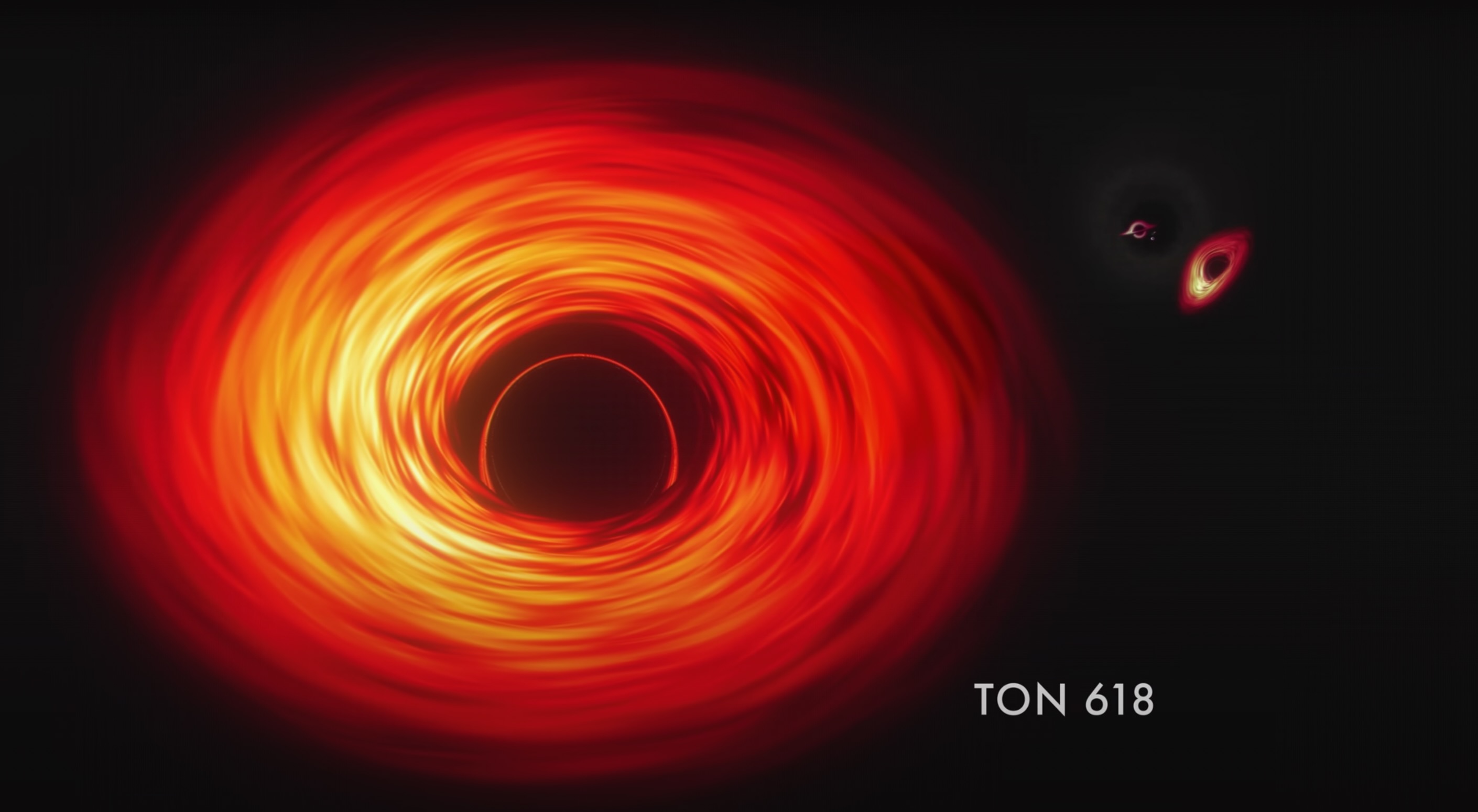New NASA astronauts 'thrilled' to see 1st Boeing Starliner crew launch in May (exclusive)
"It's going to give us more opportunities to fly."

A new spacecraft will at last launch its first crew in May, and a fresh group of NASA astronauts say they're excited to support it.
NASA's newest astronaut group graduated from basic training on March 5, just in time for the first Boeing Starliner test launch with astronauts, which is now expected in May. Veteran astronauts Suni Williams and Barry "Butch" Wilmore will fly Starliner on the roughly week-long International Space Station (ISS) mission, called Crew Flight Test.
When it's up and running, Starliner will regularly carry astronauts to and from the ISS alongside SpaceX's Crew Dragon vehicle, which began its own astronaut flights in 2020. The newest astronaut cohort can't wait to climb on board the Boeing craft.
"It's a new capability," astronaut and oil rig engineer Deniz Burnham told Space.com, hours after her graduation. "Everyone is just thrilled. We're very excited for Suni and Butch, and it's going to be great."
Related: NASA, Boeing delay Starliner capsule's 1st astronaut launch to early May
Boeing and SpaceX both received the go-ahead to develop new commercial crew vehicles in 2014 for ISS missions, with billions of dollars of funding from NASA. The road to the launch pad has been quite a bit rougher for Starliner than for Crew Dragon, however.
Starliner suffered an anomaly on its first mission, an uncrewed flight that launched in December 2019, and failed to reach the ISS as planned. Correcting the dozens of issues identified in the wake of that flight took time, and schedules were delayed further amid the outbreak of the coronavirus pandemic in early 2020. But Starliner succeeded in meeting up with ISS on its second uncrewed try, in May 2022.
Breaking space news, the latest updates on rocket launches, skywatching events and more!
Starliner's first astronaut test flight has experienced its own issues during development. Those issues — chief among them faulty suspension lines on Starliner's parachutes and wiring wrapped in flammable tape — delayed the planned liftoff from July 2023 to spring 2024.
The delays required a few Starliner crew change-outs along the way, but the launch schedule is firming up for future Starliner missions. NASA astronauts Scott Tingle and Mike Fincke, alongside Canadian Space Agency astronaut Joshua Kutryk, are now assigned to fly Starliner-1, the first six-month operational ISS mission for the vehicle, no earlier than 2025.
Related: Canada assigns astronauts to launch on Boeing's Starliner, back up Artemis 2 moon mission
New astronaut Luke Delaney, a former U.S. Marine test pilot, emphasized that developing complex vehicles often comes with issues like those that Starliner faced. What encouraged him, he told Space.com, was NASA's and Boeing's readiness to accept feedback for crew safety.
"I'm definitely familiar with that insight, in terms of the developmental pieces, and as an operator, that's fantastic, to be able to know what's happening developmentally, making changes or suggestions," he said.
For medical physicist-turned-astronaut Christopher Williams, Starliner represents a big expansion of spacecraft options for astronauts.
"It's going to give us more opportunities to fly," Williams said. "There are so many vehicles coming online right now." Aside from Starliner, other new crewed vehicles on the horizon for NASA astronauts include the Orion spacecraft and SpaceX's Starship lander, both of which will be used for Artemis missions to the the moon.
Christina Birch, a former track cyclist and bioengineering professor, said her new astronaut class is excited for the possibility of flying any of these vehicles to space. But safety will need to come before schedules to make sure the spacecraft are ready to carry people to low Earth orbit and beyond, she emphasized.
"We really are pushing the boundaries," Birch said of Starliner. "That mentality of a space test flight — doing everything for the first time and putting safety at the very forefront of our minds — is the mentality that I'm taking into supporting these Artemis missions and working with Orion."
Flight surgeon and astronaut Anil Menon said Starliner's forthcoming launch is "another success of the commercial crew program" that shows NASA's spending on development a decade ago was worth it. Meanwhile, Navy aviator and fellow astronaut Jack Hathaway is celebrating the commercial success alongside a more personal connection.
"This is a success for NASA [and] part of the plan in the game here to make low Earth orbit more accessible, with more vehicles and more commercial partners," he said. "I'm also super excited that Butch and Suni are there. They're both Navy, just like me, and I'm really excited for them to be able to fly the first test mission by the book. I can't wait to watch them go off."

Elizabeth Howell (she/her), Ph.D., was a staff writer in the spaceflight channel between 2022 and 2024 specializing in Canadian space news. She was contributing writer for Space.com for 10 years from 2012 to 2024. Elizabeth's reporting includes multiple exclusives with the White House, leading world coverage about a lost-and-found space tomato on the International Space Station, witnessing five human spaceflight launches on two continents, flying parabolic, working inside a spacesuit, and participating in a simulated Mars mission. Her latest book, "Why Am I Taller?" (ECW Press, 2022) is co-written with astronaut Dave Williams.

